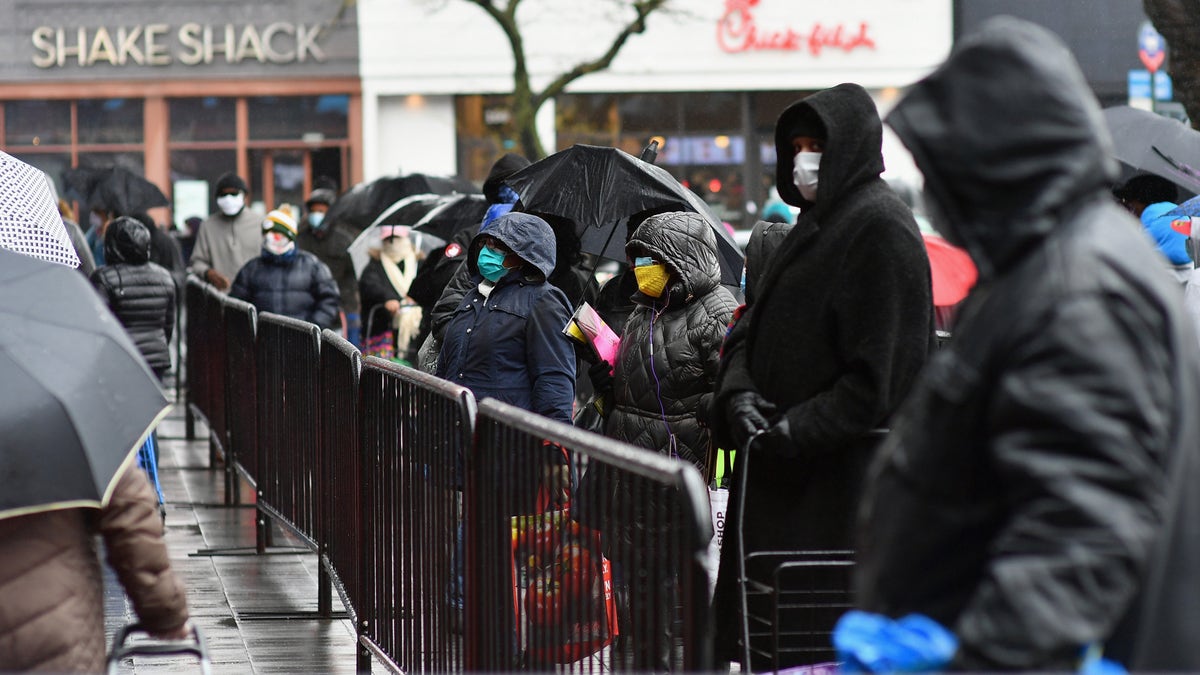Fox News Flash top headlines for May 12
Fox News Flash top headlines are here. Check out what's clicking on Foxnews.com.
Get all the latest news on coronavirus and more delivered daily to your inbox. Sign up here.
Widely seen photographs of hundreds of cars in Texas or people in New York City lined up at food banks are a vivid reminded of the economic devastation COVID-19 has wrought.
But even prior to the pandemic, one in seven American adults between the ages of 50 and 80 already had trouble keeping food on the table because of cost or other issues, a new poll reveals.
The percentage who said they'd experienced food insecurity in the past year was higher among those in their pre-Medicare years and also those who are African-American or Latino. Older adults with lower household incomes and lower levels of education were also more likely to say they had had trouble getting food, according to the poll.

People wait in line for the Food Bank at the New York City mobile food pantry on the Barclays Center plaza on April 24, 2020 in the Brooklyn, New York. (Photo by Angela Weiss / AFP) (Photo by ANGELA WEISS/AFP via Getty Images) (Getty Images)
"These data suggest an important opportunity, which is likely even more urgent now, to connect older adults with resources they may not know about, and to explore public policies that could improve access," said Cindy Leung, Sc.D., M.P.H., a member of IHPI and assistant professor of nutritional sciences at the U-M School of Public Health who worked on the poll, in a statement.
Still, the poll revealed that only a third of those with food affordability issues were receiving government food aid for people with low incomes, called SNAP benefits or "food stamps."
TWITTER TO LET EMPLOYEES WORK FROM HOME INDEFINITELY
Disruptions to food supply chains, employment and social services from COVID-19 are likely to have worsened disparities, according to experts.
The new results come from the National Poll on Healthy Aging, carried out by the University of Michigan Institute for Healthcare Policy and Innovation with support from AARP and Michigan Medicine, U-M's academic medical center.
It involved a national sample of more than 2,000 adults aged 50 to 80 who answered a range of questions about their food security in December 2019.
As of Tuesday evening, at least 1,367,491 people were infected and 82,227 have died from COVID-19 in the United States.









































